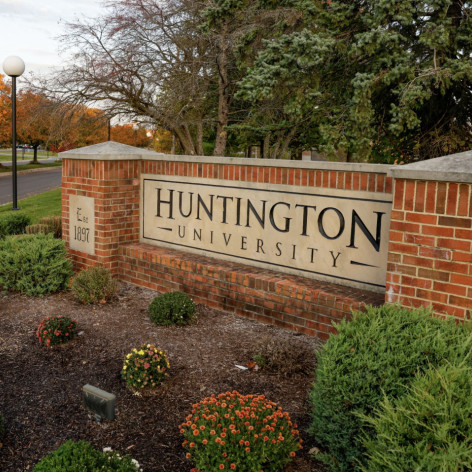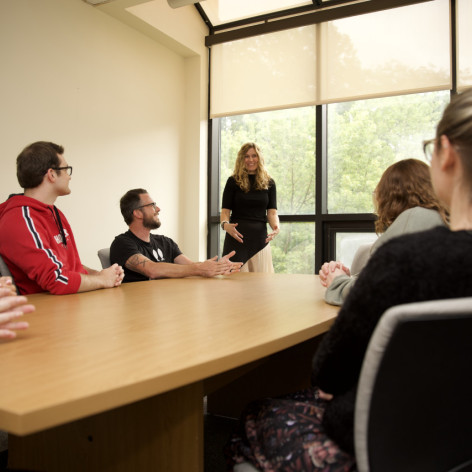HU nursing program receives full accreditation
| Dr. Margaret Winter |
HUNTINGTON, Ind. - Four years ago, Huntington University launched a nursing program with the goal of integrating rigorous instruction with faith-based values. Today, as the campus prepares for commencement ceremonies that will honor the nursing department's first graduating class, the program has received full accreditation from the Commission on Collegiate Nursing Education.
The program was awarded a five-year accreditation with no compliance concerns, the most a first-time program may receive under the guidelines of the accrediting body.
"This is a dream come true and truly an answer to prayer," said Dr. Norris Friesen, vice president and dean of the university. "We started this process almost eight years ago and to see the program become fully accredited is amazing. I am excited to see how God will use our nurses to impact our communities and beyond.
For accreditation, the university was required to write a self-study report, host a site visit by an evaluation team and have the results reviewed by the CCNE Board. CCNE is an independent accrediting agency recognized by the U.S. Secretary of Education as a national accreditation agency. CCNE assesses baccalaureate and graduate nursing programs.
"This has been a combined effort of the faculty, staff and students of the Department of Nursing with the support of the administration and staff of the university," said Dr. Margaret Winter, director of nursing. "The accreditation is a critical factor for students obtaining employment in the health care field as well as obtaining advanced degrees, such as a nurse practitioner or nurse educator."
In 2007, the Indiana State Board of Nursing voted to grant full initial accreditation to the university's nursing program.
The Bachelor of Science in nursing degree is built upon Christian principles and is strengthened by a broad curriculum in the liberal arts. The program provides students with extensive on-campus and off-campus clinical experiences as well as in-depth training in human anatomy and physiology, chemistry and core courses in the liberal arts. The university's state-of-the-art, 93,000-square-foot Science Hall houses the nursing lab complete with simulated patients.



